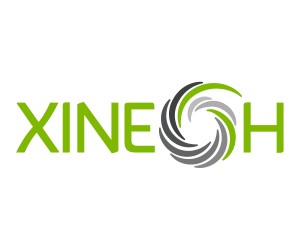Artificial intelligence is as important to this generation as the adoption of electricity was to industry many years ago and the full integration of the internet was just a few decades ago. Modern day businesses that survived the computer age are at risk of falling behind and beginning their own decline if they do not look to evolve with the innovations of the current, fourth industrial revolution or digital age.
What is Xineoh and what services does Xineoh offer?
We enable companies to predict consumer patterns within a few weeks, using their transaction data. We help them answer questions such as which product will be bought by whom at what price and at which level of demand, or which products they should recommend to which clients at any given time.
None of our competitors can implement such a system at the same speed as we can.
In your opinion what do you think businesses can do to avoid becoming the next Sears?
A business needs to accept the process of creative destruction. The conclusion of this that a company has two choices either the business will destroy its old self by adopting new methods and technology and survive in a new incarnation, or an outside competitor will destroy the business, and it won't survive in any form. Think Kodak or Sears.
As an innovator and a data scientist, how do you think businesses can fully evolve with the innovations of the current, fourth industrial revolution or digital age?
The main difference between the 4th industrial revolution and the previous revolutions are that we are moving at an incredible speed and the implications of the technology sit at a somewhat abstract level vs electricity as an example. The easiest application understandable for a non-technical CEO is I/O (input/output) algorithms. Basically, it is the process of automating small decisions in the organisation that are repeated often. As a rule of thumb, any decision that a human can make in a second or less can be automated. Starting year will enable an organisation to ultimately evolve into an AI centric organisation with centralised data repositories and AI enabled decision making.
Is technology like a company website enough for it to compete with its competitors?
Not at all. Sears had a website, but it in no way embraced the capabilities that modern technology offered. If it moved itself entirely online, it would have been able to rapidly iterate, thereby better satisfying consumer needs and wants. It is not as much about the literal technology as it is about how the company embraces the adapts the organisation towards the capabilities enabled by the technology.
In this digital age, how can artificial intelligence approach assist businesses?
See question 3.
Why do you think businesses need to adopt the artificial intelligence as an important approach?
Humans are good at drawing inferences from limited data. An average human can keep about 6 data points in his/her working memory. With the advent of tera- and -peta-byte sized databases it has become impossible for humans to interact with this amount of data in any meaningful way without the use of AI. A business that does not successfully implement AI will be at a significant disadvantage versus competitors who are using their data effectively to better service customer needs.
Can artificial intelligence approach be implemented for all industries?
Yes, every single industry.






